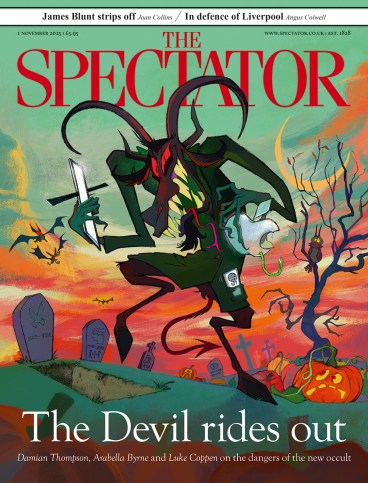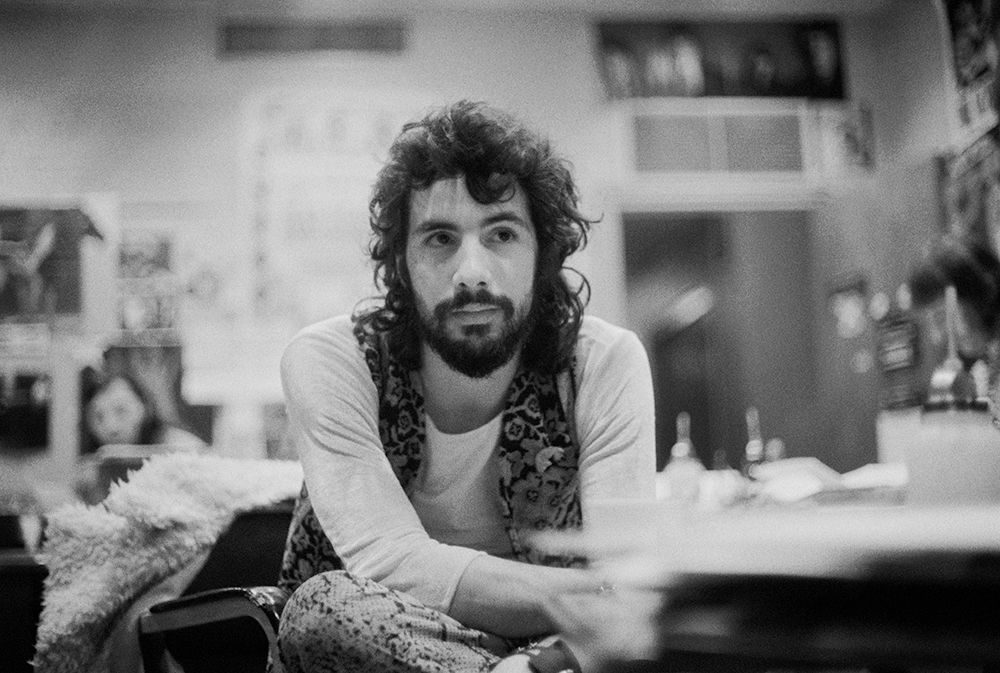
Essentially this is a book of two halves –before and after Cat’s conversion to Islam in 1977 – and the first half is immeasurably the more engaging. He was born Steven Georgiou in 1948, the youngest of three children, to a Greek-Cypriot father and a Swedish mother, with a much older brother and sister. His parents ran a café, Moulin Rouge, on Shaftesbury Avenue, in the heart of London’s West End, and the family lived above it. He went to a Catholic primary school near Drury Lane and then, having failed the 11 plus exam, to a secondary modern in the City. But he left school at 16 with only one O-level, in art. It was enough to get him into Hammersmith Art School, but he was already more interested in writing songs.
His father had bought him a guitar when he was 15 and he formed a group with two mates. But he quickly realised: ‘I was born to go solo.’ He changed his name to Cat Stevens and got regular gigs at Les Cousins in Soho. His older brother David – who had once told him ‘You’ll never be a singer’ – now acted as his manager and walked along Tin Pan Alley shouting for someone to give his ‘genius brother’ a record deal.
Sure enough, Cat was soon signed by Decca: ‘Thus began my rapid rise to success and fame, followed by my commensurate head enlargement and indulgence in sex, booze and chain smoking.’ He had only just turned 19. His single ‘Matthew and Son’ rose to No. 2 and he went on tour with Engelbert Humperdinck and Jimi Hendrix. Humperdinck introduced him to port and brandy – ‘my main pre-show pep drink for many unbearable gigs to come’. But after just 16 months in showbiz, he started coughing blood, was diagnosed with TB and spent many months in hospital. It was the end of his first teeny-bopper pop pin-up career.
So he decided he wanted to write musicals and spent several months working on a script about the Romanovs called Revolussia with, improbably, the actor Nigel Hawthorne. It never came to anything; but it got him an introduction to Chris Blackwell of Island Records, who was wildly excited by a song he’d written about his girlfriend, which became the hit single ‘Lady d’Arbanville’. More hits followed (‘Morning Has Broken’, ‘Father and Son’, ‘Wild World’) and he toured Europe and the States. He had an affair with Carly Simon and even suggests that ‘You’re So Vain’ was written about him.
But all this time, he says, he was really on a spiritual quest. He remembers that when he was in the schoolyard at his secondary school ‘something inexplicable and quite unworldly happened… I was all alone at breaktime when a spiritual alter-self within me started to speak and told me there was Jesus inside me.’ He knew about Jesus from his primary school days, but later he read up on Buddhism, Sufism and all the trendy beliefs – Zen, I Ching, numerology – sloshing around west-coast America, though, oddly, he says, he never encountered a book on Islam. But one day, in Marrakesh, his brother gave him a copy of the Quran, which appealed to him more than any of the other religious books he had read. He visited a mosque there, and then, when back in London, started attending the newly built London Central Mosque in Regent’s Park. He took instruction from an imam, joined study groups, and eventually, on 23 December 1977, converted to Islam.
‘A spiritual alter-self within me started to speak and told me there was Jesus inside me’
It meant changing his life, learning to pray five times a day and eating only halal meat. He chose the name Yusuf because it was the Arabic version of Joseph and he liked the story of Joseph and his brothers. He felt obliged to give up his musical career because it was haram in Islam, but this didn’t seem a sacrifice at the time because he was running dry as a songwriter. He told Island and A&M records that he needed time off and sent all his musical instruments to auction at Bonham’s, raising £40,000.
Then he had to find a wife. A friend at the mosque introduced him to a Mr Mubarak Ali, who had five unmarried daughters. He went to tea with them and was attracted to the middle one, Fawziah, and arranged for her to meet his mother, who approved. So he asked her parents’ permission to propose and they got married on 7 September l979. There was no courtship – they had barely met – but they are still together and have five children. He campaigned to set up a Muslim school to educate them and it recently celebrated its 20th birthday.
His first year as a Muslim was ‘absolute bliss’; but gradually he got embroiled in politics. He sued a Miami newspaper which wrote that he had joined the Ayatollah. Then, in 1988, he appeared to support the fatwa against Salman Rushdieand was quoted as saying ‘Kill Rushdie’ (which he now denies). And in 2004 he was taken off a flight to the States and told he was on a ‘No Fly’ list. The episode was heavily covered by the British press and ‘raised my profile considerably’.
In 2002 his family joined him for a holiday in Dubai (where he now lives) and his son Muhammad brought his guitar. It was the first time Yusuf had had one in the house since he auctioned his instruments, but he tried playing it when he was alone and the pleasure came rushing back. He decided that music was not haram after all, so he wrote a batch of new songs and started doing concerts again. He even played Glastonbury two years ago. He says that with this second coming: ‘I was less high-strung and not as tyrannical as I had been when I was last in the business. Many who now worked and toured with me must have thanked God for that.’
Obviously Cat Stevens/Yusuf Islam finds himself limitlessly fascinating; but whether readers will share his fascination over 550 pages is open to doubt, especially when he intersperses his narrative with long quotes from the Quran. He is too preachy, too self-justifying and generally too pleased with himself. And I couldn’t help noticing that the book features 82 photographs of him and just two of his wife. So, for all its proselytising intent, it made me feel less, not more, sympathetic to Islam.







Comments